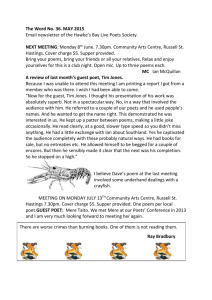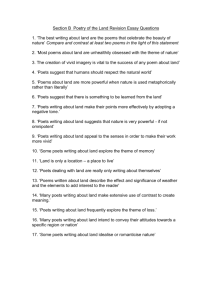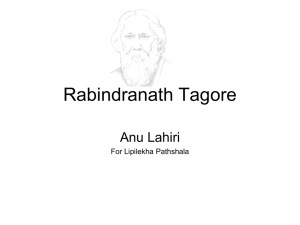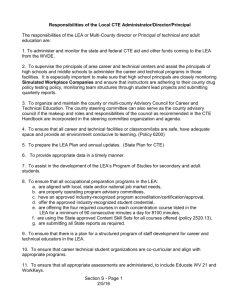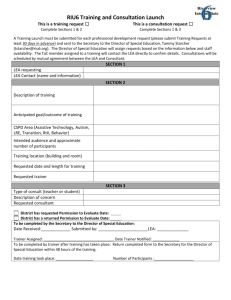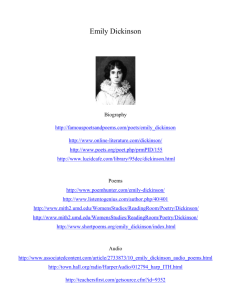Harry Ricketts, `Donald H Lea and Alfred Clark: Two New Zealand
advertisement
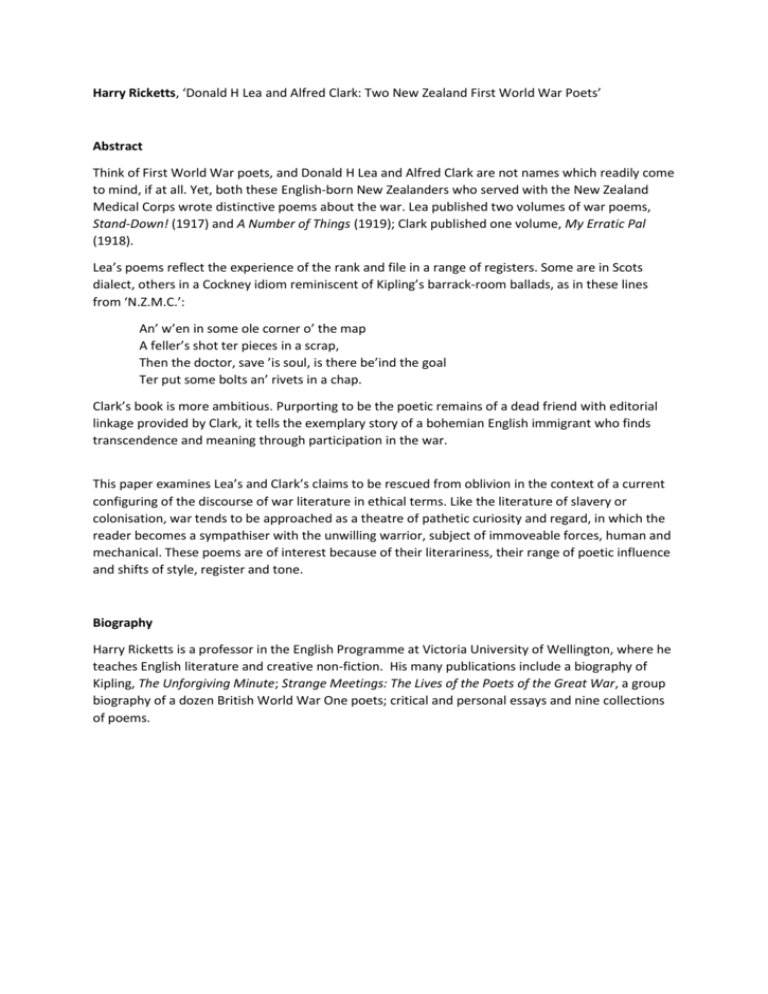
Harry Ricketts, ‘Donald H Lea and Alfred Clark: Two New Zealand First World War Poets’ Abstract Think of First World War poets, and Donald H Lea and Alfred Clark are not names which readily come to mind, if at all. Yet, both these English-born New Zealanders who served with the New Zealand Medical Corps wrote distinctive poems about the war. Lea published two volumes of war poems, Stand-Down! (1917) and A Number of Things (1919); Clark published one volume, My Erratic Pal (1918). Lea’s poems reflect the experience of the rank and file in a range of registers. Some are in Scots dialect, others in a Cockney idiom reminiscent of Kipling’s barrack-room ballads, as in these lines from ‘N.Z.M.C.’: An’ w’en in some ole corner o’ the map A feller’s shot ter pieces in a scrap, Then the doctor, save ’is soul, is there be’ind the goal Ter put some bolts an’ rivets in a chap. Clark’s book is more ambitious. Purporting to be the poetic remains of a dead friend with editorial linkage provided by Clark, it tells the exemplary story of a bohemian English immigrant who finds transcendence and meaning through participation in the war. This paper examines Lea’s and Clark’s claims to be rescued from oblivion in the context of a current configuring of the discourse of war literature in ethical terms. Like the literature of slavery or colonisation, war tends to be approached as a theatre of pathetic curiosity and regard, in which the reader becomes a sympathiser with the unwilling warrior, subject of immoveable forces, human and mechanical. These poems are of interest because of their literariness, their range of poetic influence and shifts of style, register and tone. Biography Harry Ricketts is a professor in the English Programme at Victoria University of Wellington, where he teaches English literature and creative non-fiction. His many publications include a biography of Kipling, The Unforgiving Minute; Strange Meetings: The Lives of the Poets of the Great War, a group biography of a dozen British World War One poets; critical and personal essays and nine collections of poems.

